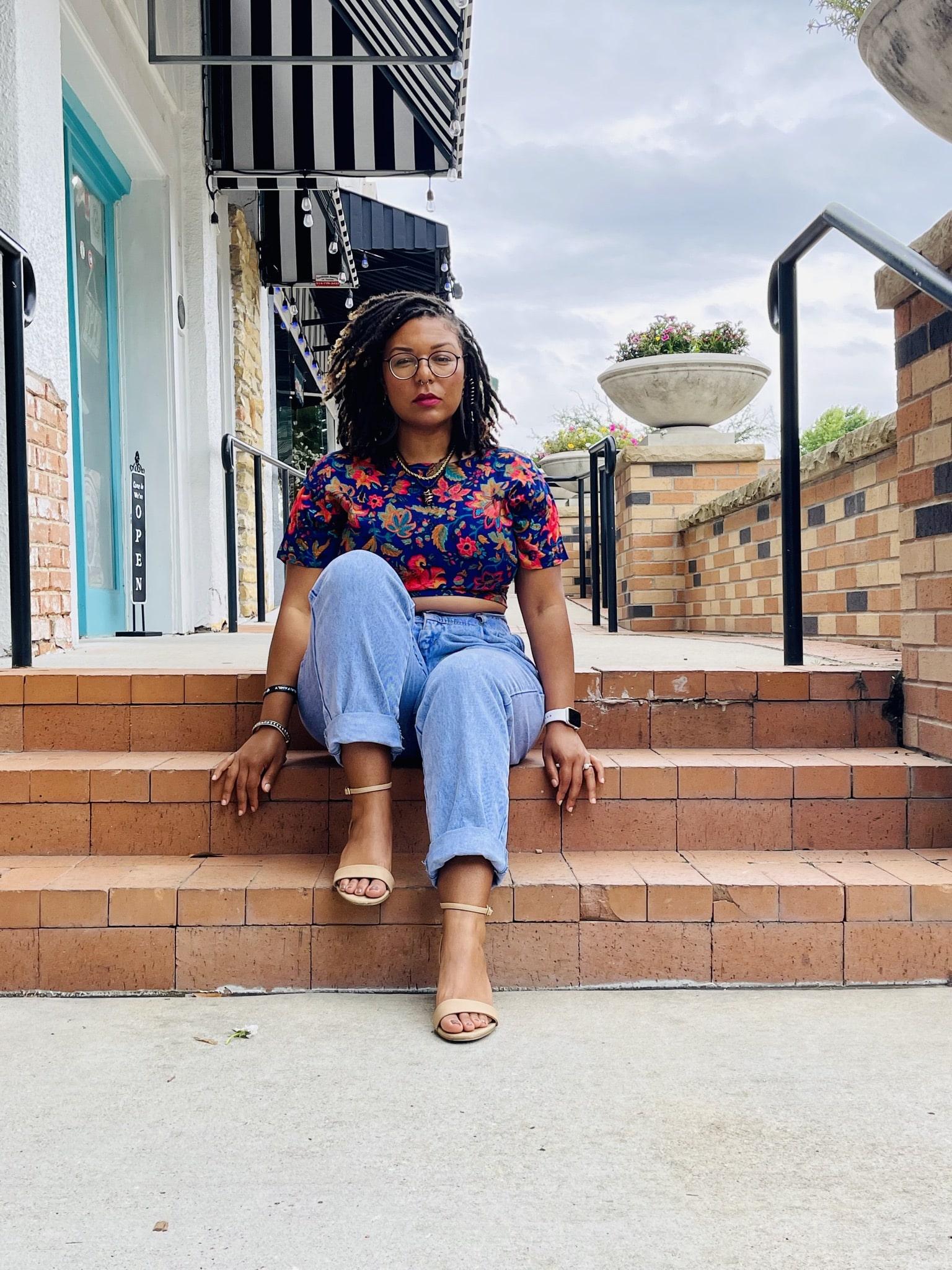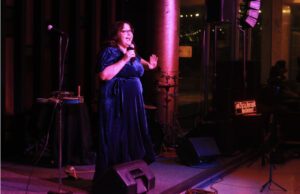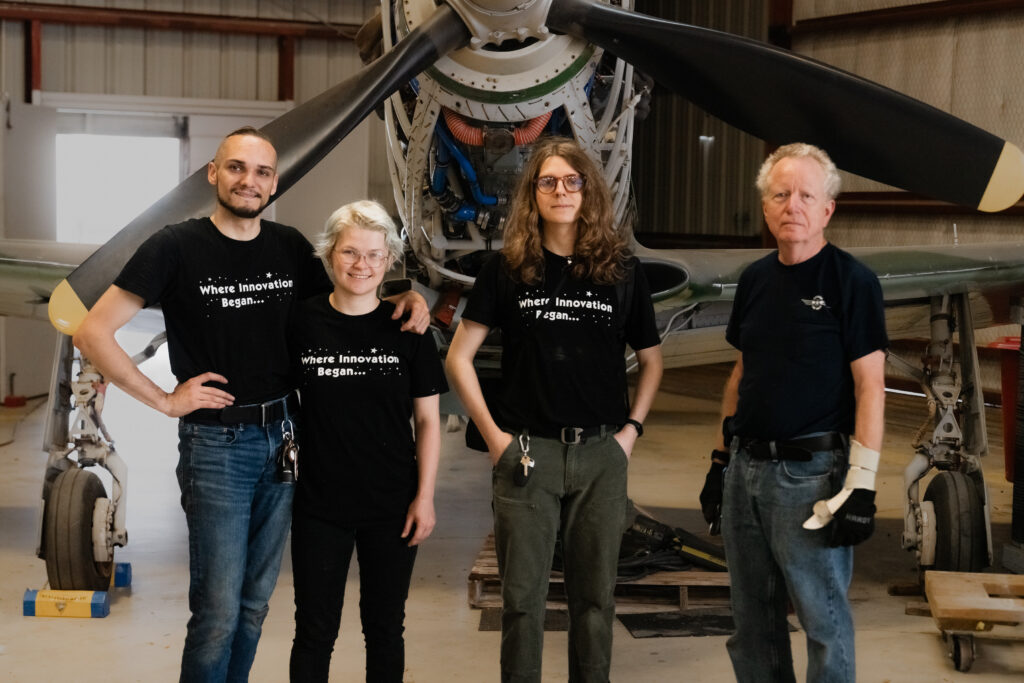
Ashley Wade, Pharm D is a practicing pharmacist from Longview, TX. She is a knowledge enthusiast, conscious thinker, and motivational speaker. She is a healer who enjoys connecting with people spiritually to positively change their lives. She also has an immense passion for reading. Through her book, “It’s a Journey, A Holistic Journal for Discovering Self”, Ashley creates a process for those who are open to connect with themselves on a deeper level. She aspired to create safe spaces for people to share and BE. She hopes to leave you empowered and inspired to be your Higher Self. I’m excited to have a conversation with her about this topic.
Were you interested in pharmacology early in your childhood?
Believe it or not, one of my high school chemistry teachers was a huge influence on my decision to pursue pharmacy as a career. My junior year in high school, I had no idea pharmacies existed. I wasn’t a sickly kid and didn’t have any issues. The topic came up regarding a headache and asking myself what I needed to take for it. My teacher noticed my questions and mentioned that I should pick up pharmacy. She showed me that a lot of science courses and a doctorate from a college of pharmacy would be needed to do this professionally. I graduated from UAMS college of pharmacy in 2016. Prior to that, I did work as a technician, learning the way the system goes, learning how to talk to patients, and learning what pharmacy is about. When you get into pharmacy school, you can start doing counseling roles, talking to patients about their medication. You learn about the process of pharmacy, how billing works, how talking to prescribers is done effectively, and the communication with nurses. It’s a cool experience and I’m so happy that I’m a pharmacist because I’ve always kind of been in that inquisitive type and love to have conversations with people taking medications.
What’s a typical interaction you have with people on medications?
There can be a lot of different scenarios. Unless you have a one-on-one with the pharmacist or somebody that works in the pharmacy, you think it’s a pill in a bottle type of thing. A lot of times patients don’t understand their health condition whether it’s high blood pressure or diabetes. They get prescribed medications and they’re not sure how it’s going to affect their body or how it’s going to help them as far as their lab values. As pharmacists, we get a lot of calls from patients asking why they need to take the prescription. Some days we may get lucky and we may get a patient that wants to know how it works, wants to know the side effects. Those conversations are always fun, because they may not understand how they got diabetes or how this medication can help them. We talk a lot with doctor’s offices, we check doses, and we check drug interactions daily. We serve as the liaison between the doctor and the patient. We get them their medicine and then we help kind of communicate with a little bit more time than a patient may experience at the doctor’s office.
What was your experience like during the covid-19 pandemic?
People who had preexisting conditions were affected in higher instances. We must be conscious of what we put in our bodies and how we take care of ourselves before it gets to diabetes. The world of pharmacy was impacted heavily because lots of people had questions and there was not a lot of information. If you can remember when COVID first came out, it was a phenomenon for most people. We were waiting on information to come down and waiting on tools to provide the patients for a long period. Since the COVID vaccine came out, pharmacies became the point of care for most people. Texas had a positive change because they have allowed technicians to vaccinate the public, which was typically delegated to the pharmacist.
Did a specific interaction move you to have your own business?
In the community pharmacy, there’s tons of Walgreens on every corner. The world of pharmacy is super busy. A lot of patients come in and ask various questions. I got close to one of my patients who was a military vet and he confided in me that he was having problems with anxiety, heart rate increases, and palpitations. When you have anxiety, there’s this piece of terror that kind of comes in where even medication can slow the palpitations down. Our conversation reached a holistic level about what could he do in relation to PTSD. I’m not an expert but I would imagine just that the constant worry being present in a lot of our military veterans because of their experiences. I’ve even had people consult with me about their lab values, which gives me the opportunity to influence and impact patient lives beyond the medication side of patient care. ADH Pharmacy and Consulting formulated from the idea where I would get comments from patients about why I didn’t go to medical school. People were surprised of the level of knowledge that pharmacists have. The idea of the “pill in the bottle thing” for some reason just sticks with the public and that’s what they consider a pharmacy as far as function, but they don’t think of the consultation aspect. The goal for ADH Pharmacy and Consulting is to be that touch point for patients. I don’t have any patients as far as the consulting business goes but I do still talk to a lot of patients. A lot of people come to me even on Instagram and they say, “Hey, I’m taking this medication, what can I expect?” I kind of serve as that liaison. And so that’s what ADH Pharmacy and Consulting is built around. The idea is for it to be a place of holistic health where we can talk about medication, there’s a team of pharmacists there to help manage medication therapy and then there’s a place for physical health.
Does your consulting practice have a book as well?
It’s one book, but separated into five sections, which I termed modules that help as a guide to self-discovery. A lot of times I talk to people and they will come to me for advice or to tap into my spirit. I found is people don’t know where to start with self-discovery. You can give a person a book, but who’s going to read it. More people are likely to grab a journal or something that’s short and something that they can relate to. I’ve spent time helping to grow perspectives on life instances and grow that into a place of discovery and self-love and appreciation and then guide you back to yourself at the final fifth module.
Is there a module that you think is being most impacted right now?
That’s a great question. I’m going to say the very first one. The very first module is called “Freedom of Expression”. The description of it is learning how to be open, how to remove hindrance of thought and processing, and becoming comfortable with conscious thought. The reason why I chose freedom of expression is I feel like COVID-19 and its consequences gave us more time to sit with ourselves and be more familiar with our own voice. I think this pandemic has opened peoples’ eyes to the fact that there’s work to be done internally and created a quiet space for people to kind of look inward on some things as an opportunity for growth and clear vision going into 2020.
Do you host reading sessions or how does that tie into your business?
The books I’ve read have helped build my consciousness and I finally started putting them together. I absolutely loved to read but once I found awareness through personally taking these steps that I listed, it’s a journey. I started becoming more aware of things like self-care tips or setting boundaries for myself. That’s why I try to teach through the modules is that everybody’s’ life is a journey and it comes with the good and the bad, and we give that so much power to shaping who we are. I’ve started to see the effect that mental health has on the African American community. As you learn about consciousness and perception you learn that all the parts matter. A lot of the negative attributes that are probably prevalent has to do with a lack of self-knowledge. Some of my book choices take me on a journey down self-knowledge. Where did I come from? Who are the heroes of my community besides the popular ones? Who are the people who are unspoken heroes, unspoken legends and what are their stories? You learn to grow in your awareness, you learn that deposits from all areas are necessary, not on just one focused area, all parts are necessary.
Are there any African American historical figures that you think deserves more publicity or novel coverage?
I’ve heard of Marcus Garvey before. In Dallas we have this phenomenal bookstore, it’s a black bookstore in South Dallas called “The Pan African Connection”. I’ve found a lot of information that I would’ve never seen in traditional bookstores that have a really great selection of pieces that are uncommon. I found this book that Marcus Garvey wrote, and I’ve had it for a while because I always frequent that bookstore. I just picked it up and remember thinking about how most people never heard of his name unless it was stated at the black bookstore. This guy really deserves his flowers. He was really making a name for himself early on. This is a guy who was born in the 1900s and created an international universal body of African people all over the world. As an African American in the United States, we hear of slavery as the beginning but there’s a huge history the African Americans have pre-slavery. The fact that there was a man who was trying to build the confidence of the African American person and try to convey to them that they are important, was a huge steppingstone for the global community. He also helped create black businesses, black organizations, especially in Harlem and New York. I think he spent most of his time working there, but he had a lot of support all over the world.
You incorporate live events with your book modules?
I attend popup shops in the community. It started at the Pan African Connection. It’s a bookstore, but it’s really a hub for also black businesses. They have a market there twice a month and they allow people in the community to vend. I would take my book and people can see the context of where I may understand people. I feel like the types of books that I read kind of give people a context into who I am as the author of this journey. And then they kind of enjoy the experience of a conversation. What I typically like to do with people is walk them through the modules. A lot of times people don’t expect to see a book at a popup. They expect to see goods like hair products, soap, or clothing.
Are there any other events in the DFW area or nationally that would like to attend?
Not necessarily at this point. If you’re in the community and you would like to meet me, I’m more than likely going to be at the Pan African Connection. There are also some other popup shops, like the Dallas Millennial Market, I attend here and there. I don’t have any speaking engagements coming up, but my books are open. I recently was able to speak on self-care and management of time for the NAACP Youth Convention for the state of Texas, which was a blast. Also Pan African Connection has been a place for me to meet influential people who provide opportunities to speak at those types of conferences without having a long list of speaking engagements. I’m looking forward to sharing more details and more experiences through my book and just sharing with people who are interested. You mentioned the group setting, that I meet with on a regular basis and walk through the modules because a lot of people are intimidated by a self-care journey or they just maybe want to talk. I have pages in here for you to write after each module, but some people kind of want to talk or they would like to talk about their scenario or they may want a different setting besides just sitting and talking. A lot of my groups, sometimes we meet outside, or it may be in the backyard. It’s just a different vibe to creating a safe space for people to share and grow because sometimes it can be difficult when you must look inward, it’s not the easiest thing to do. I like to be able to provide that support or if people prefer to have a one on one interaction.

